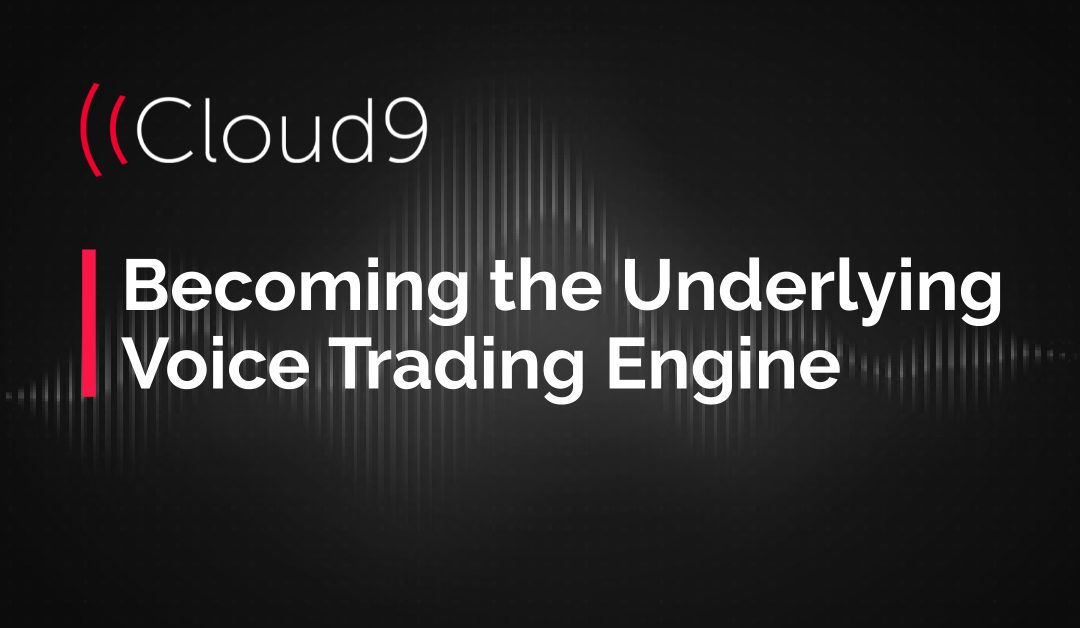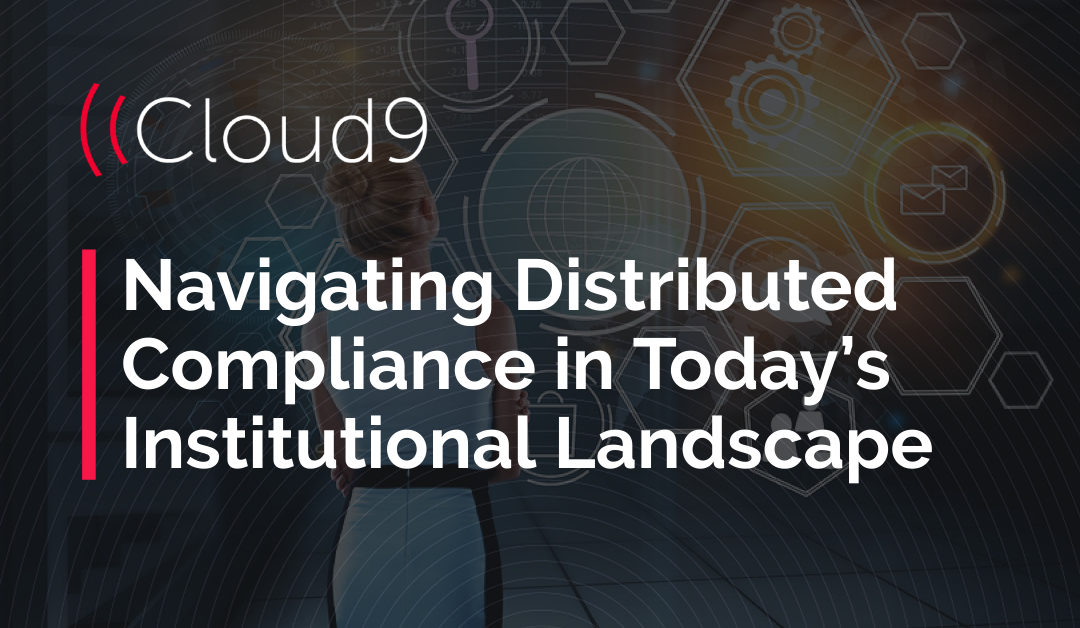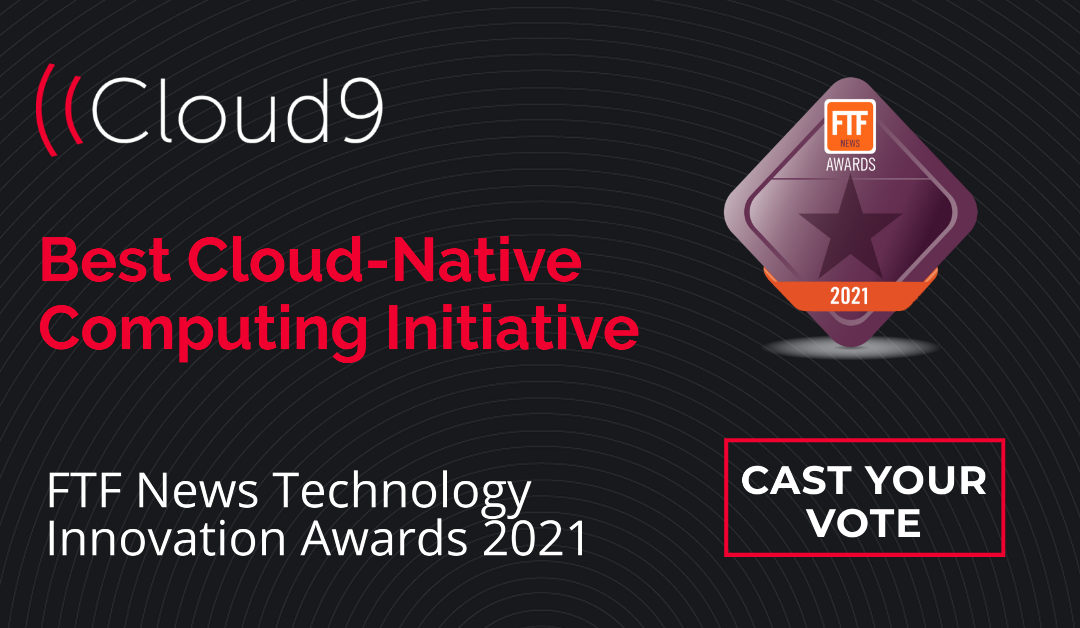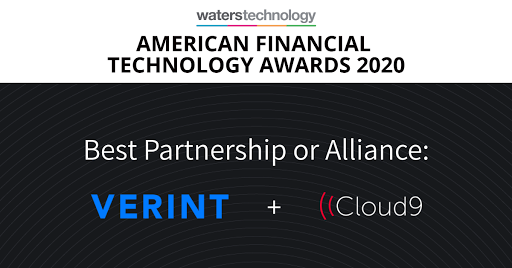
by Jim Miller | Jun 3, 2021 | Blog, Thought Leadership
Capital markets have undergone a seismic shift in recent years, particularly with the accelerated adoption of technology and cloud-based solutions over the last 15 months. One thing that has not changed, however, is the importance voice trading continues to play in the institutional landscape. And with the increasing levels of sophistication that are enabling individuals on and off the trading floor to communicate with each other – particularly through more advanced APIs – there is now a greater appetite than ever before for cloud-based trading solutions.
The days of solely relying on traditional trading turrets and private wires are dwindling away. Filling that gap are cloud-based, API-driven trading platforms that are driving innovation, enabling firms to streamline workflows, and empowering access to a virtual trading floor that will very soon become the norm across the industry.
In the last year alone, there has been more adoption of cloud than in the ten years prior combined. The pandemic has been a key driver, although this transition was certainly underway prior to last March. When remote working began last March, every firm had to quickly transition to 100% remote – something that cloud-based trading solutions and APIs already enable.
Firms are not only more comfortable with data residing in the cloud but they are now more frequently coming to vendors for help. In fact, leadership at major banks and financial institutions is becoming more outspoken about the need for cloud.
Some customers are generating more than 300,000 voice trading recordings each month. Thanks to advanced APIs and natural language processing (NLP) technology, firms are able to capture the audio of these conversations with 99% accuracy. This not only simplifies the regulatory and compliance process but also delivers more actionable insights that elevate performance.
Two things are becoming very clear. The capabilities for firms to efficiently and securely conduct voice trading in the cloud are there. Firms are becoming far more comfortable using the cloud to access a virtual trading floor and with storing data there.
However, with the growing appetite – and the need – for cloud-based voice trading capabilities, therein lies a growing responsibility for the technology vendors to continue pushing the innovation curve and fuel the voice trading engine.
The Vendor Responsibility
Much like other areas of the institutional ecosystem, the approach to voice trading has shifted for many participants. Today, working from anywhere is a basic necessity and having access to data from anywhere is critical. The key driver in developing technology that can support these changes has and will continue to be listening to customers and addressing their concerns.
API-based platforms are quickly becoming the foundation for the institutional voice trading ecosystem, allowing third parties to access unique voice data and integrate with best-of-breed analytics and surveillance providers. APIs can also ingest rich sources of data that can help analyze and improve the productivity of traders.
About two years ago, remote virtual desktop infrastructure (VDI) began to gain traction and is now enabling more of a hybrid approach for folks who prefer to share time between the trading floors and a remote work environment. Moving forward, support around VDI and ‘work from anywhere’ will become central to everything in institutional trading.
With a greater selection of collaboration tools available and more ways to talk to customers, technology and structural complexities are inevitable. It is up to the vendors to address these hurdles by integrating data with back-office systems and data warehouses.
Becoming the Industry Engine
Voice trading is not a one-size-fits-all. Customers want optionality and the ability to customize workflows. Some have already immersed themselves in the cloud while others still seek a traditional phone turret experience.
With institutional IT teams focusing more on value-add than just on the overall infrastructure, vendors have to provide sufficient management so that IT teams can more easily and seamlessly implement these solutions into their own systems.
The most challenging part is understanding each customer. There are a variety of trader types and with that comes a variety of different workflows. Vendors that are providing voice trading capabilities need to define each of these workflows and have the APIs to support them.
What is most important is that a cloud-based virtual trading setup looks and feels the same for the users. While firms want options around how and where they can operate, they don’t want their teams needing to adapt to different systems depending on where they are on a particular day.
It is no longer about just providing voice capabilities. The focus now needs to be on providing all the voice trading capabilities customers need in a single, intuitive and interoperable platform that’s secure and accessible from anywhere.
Becoming the voice trading engine for the institutional capital markets will be no small task for any technology provider. But enabling anytime, anywhere access, and delivering the ability to digitize data from any conversation simplifies workflows and provides the actionable insights that firms need in our ever-evolving environment.
To learn more about voice trading capabilities and how to navigate the challenges you may be facing in our current environment, please attend our next virtual roundtable that will be co-hosted with EY on Thursday, July 22 at 10am ET. The event will focus on the importance of voice trading data. More information to come but you can secure your spot by emailing cloud9@paragonpr.com.
For more information on Cloud9’s voice trading and cloud solutions, please contact us at sales@c9tec.com.

by Leo Papadopolous | Mar 8, 2021 | Blog, Thought Leadership
The last year has been a whirlwind for everyone. And while regulators such as the CFTC have offered temporary relief and extensions to certain voice trading and record-keeping rules in the increasingly virtual environment, distributed compliance parameters still remain a pivotal element of the institutional landscape. A distributed workforce is not a new concept in any industry, including capital markets. However, a lot of firms continue to struggle with how to address the challenges they’ve faced in the process, particularly in a shifting market ecosystem. While every company needs to employ remote working capabilities, there’s no question that it is difficult to manage and can create potential compliance challenges.
Shifting to the Cloud
With financial institutions acclimating to a longer-term remote strategy and some even beginning to employ permanent work-from-home policies, there has been not only an increased appetite for the cloud – but an increased need. The cloud has become particularly important in enhancing flexibility and redundancy. For the first time, firms are more open and comfortable allowing their data – including voice and communication data and disaster recovery solutions – to reside in the cloud. With users that traditionally work both on and off the trading floor distributed across numerous locations, the cloud has become the easiest place to store and retrieve data. While compliance vendors have typically offered on-premise solutions, cloud-based support is still in its nascent stages. This has opened the door for compliance providers to offer new and more sophisticated products. Conversely, customers need to be asking whether or not compliance vendors can provide both on-prem and cloud-based support.
Open and Interoperable
At Cloud9, one of our goals has been to establish a community of specialists that collectively addresses the integration, efficiency and mobility challenges that firms have faced in the virtualization of our industry. The key is ensuring that vendors are interoperable to enable efficient workflows and avoid performance issues for customers. The same goes for voice trading APIs, which are becoming increasingly more sophisticated to align with the need for greater flexibility in the institutional trading community. Each company will format their data within APIs a bit differently. As a result, if you’re a compliance vendor for instance, you need to be able to normalize data before it can be used.
Industry-wide Data Standard
This raises the question of whether or not an industry-wide standard for data is necessary. For now, it’s not imperative but as data sets become larger and more complex, this may be something that we see the industry transition to, especially as teams become more dispersed and compliance oversight becomes more challenging. To learn more about distributed compliance and how to navigate these challenges in our shifting landscape, please sign-up for Cloud9 and EY’s Distributed Compliance Virtual Roundtable on April 8. You can secure your spot by emailing cloud9@paragonpr.com. For more information on Cloud9’s voice trading and cloud solutions, please contact us at sales@c9tec.com

by Cloud9 | Mar 5, 2021 | Awards
The shortlist has been released for the FTF News Technology Innovation Awards 2021 and Cloud9 is a finalist for Best Cloud-Native Computing Initiative.
The FTF News Technology Innovation Awards recognize the professionals, financial technology vendors, service providers, industry bodies and regulators that have made significant strides and noteworthy achievements in operational excellence during 2020. These awards will be decided by an industry-wide vote that will close on May 14.
Over the last 12 months, Cloud9 has empowered institutional traders to not only work remotely as trading floors have closed, but elevate their workflow efficiency by delivering anytime/anywhere access to a “virtual trading floor” via its suite of voice trading APIs. This has enabled some of the largest global institutions to move beyond traditional legacy technology and to a more secure, mobile and accessible cloud-based ecosystem.
Cast your vote today for Cloud9 as the industry’s Best Cloud-Native Computing Initiative. Thank you for your support!

by Cloud9 | Dec 4, 2020 | Awards, News
December 4, 2020 – WatersTechnology recently announced the winners of its 16th annual American Financial Technology Awards (AFTAs) and the collaboration between Cloud9 & Verint was named the winner of the “Best Partnership or Alliance” category. The partnership, which was announced in July 2020, provides the capital market ecosystem with a fully compliant, cloud-enabled communications solution to support traders both on the trading floor and remotely, providing necessary flexibility as the industry continues to take a cloud-first approach and gains a greater appetite for anytime, anywhere access to the “virtual trading floor”.
Hosted by Waters Technology, the AFTAs recognize the best across the deployment and management of financial technology within the asset management and investment banking communities over the last 12 months. The 2020 AFTAs featured 29 categories, with 16 focusing on end-users and 13 for technology vendors.
The joint solution brings together Cloud9’s C9Trader voice communication platform and Verint® Financial Compliance Capture™ for advanced communication capture, records retention, secure data governance and advanced data analysis. By doing so, it gives financial institutions an enterprise-wide communication and compliance framework that alleviates obstacles and ensures traders remain within compliance parameters both remotely and on the trading floor. Through the analytics and open data APIs, businesses can capture, preserve and monitor a complete set of voice records and metadata and make these available for surveillance, trade reconstruction and analysis purposes.
“The American Financial Technology Awards is a true recognition of our teams’ ongoing efforts and strategy to support the trading industry in this exigent times,” comments Phil Fry, VP of Product Strategy at Verint. “It’s a great honor to receive such a prestigious industry accolade with Cloud9 and we look forward to continuing to redefine trading compliance to help financial market participants ensure that traders stay connected with clients, peers, and counterparties without having to worry about compliance infractions.”
“As the institutional trading landscape becomes more digitized and work-from-home becomes much more common or in many cases essential, access to voice data is essential to fufill regulatory and operational requirements,” said Briant Hunt, Chief Administrative Officer and Head of Partnerships at Cloud9. “Receiving this top honor in the financial technology space is a testament of our collaboration to support the trading community with greater flexibility and optionality during the pandemic crisis and beyond.”
As part of Cloud9’s podcast series that examines developments in the voice trading ecosystem, Cloud9 CAO and Head of Partnerships Brian Hunt recently spoke with Verint’s VP of Product Strategy Phil Fry about the importance of extracting voice data. You can listen to the full episode here.




